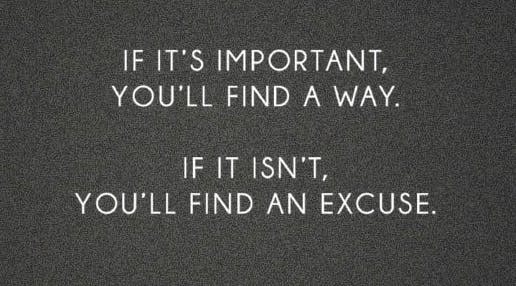The recent surge in layoffs across various industries has left many professionals feeling uncertain about their job security. Companies have made headlines with significant workforce reductions. In such a climate, it's crucial for employees to stay informed and prepared for any eventualities.
Here are some strategies to help professionals navigate through these challenging times:
Stay Informed: Keep up-to-date with the latest news on layoffs and industry trends. Websites like Layoffs.fyi track layoffs and can be a valuable resource.
Enhance Your Skillset: Continuous learning and upskilling can make you more valuable to your current employer and more marketable to potential employers.
Network: Build and maintain a strong professional network. Networking can open doors to new opportunities and provide support during job transitions.
Financial Planning: Ensure you have a financial safety net. This could mean saving more or consulting with a financial advisor to make smart money moves.
Mental Health: Take care of your mental health. Layoffs can be stressful, so it's important to manage stress through healthy habits and, if needed, professional help.
Explore Side Projects: Engage in side projects or freelancing to diversify your income sources and keep your skills sharp.
Prepare Your Resume: Keep your resume and LinkedIn profile updated. Highlighting recent achievements and skills can make a difference.
Consider Your Options: Be open to exploring new industries or roles that may be more stable or in demand.
Stay Positive: Maintain a positive outlook. This can improve your resilience and help you cope better with change.
Legal Knowledge: Understand your rights as an employee. If you're laid off, know what severance or benefits you're entitled to.
The landscape of employment is shifting, and while the trend of layoffs presents challenges, it also opens up new avenues for growth and career development. By staying proactive and prepared, professionals can navigate these turbulent waters with confidence.
For those affected by layoffs, remember that this can be a time of reflection and new beginnings. Many have found that such transitions, while difficult, have led to fulfilling and prosperous career paths.
On Fun Side
In the corporate game of musical chairs, it seems the music's stopped and some folks are left standing.
If your job gave you a "surprise vacation," you might not be alone. Layoffs are trending more than TikTok dances lately.
Remember when you wanted a day off? Well, check the news, you might have a few coming... involuntarily.
They say change is good, but I'm pretty sure they didn't mean changing from employed to unemployed.
On the bright side, your work emails just got a lot more manageable.
Overcome depression!
Acknowledge your feelings: It's natural to feel a range of emotions after a layoff. Accepting these feelings is the first step towards healing.
Seek support: Reach out to friends, family, or professionals who can provide emotional support and guidance.
Establish a routine: Create a daily schedule that includes job search activities, exercise, and hobbies to bring structure to your days.
Focus on self-care: Prioritize activities that promote well-being, such as exercise, healthy eating, and adequate sleep.
Explore new opportunities: Use this time to consider different career paths or further education that may open new doors.
Few Books for reference:
"This Is Depression" by Diane McIntosh offers an understanding of depression and various treatment options.
"Feeling Great" by David D. Burns focuses on combating negative thoughts.
"Learned Hopefulness" by Dan Tomasulo taps into the power of positive psychology.
"Cognitive Behavioral Therapy Made Simple" by Seth J. Gillihan provides CBT strategies in an accessible way.
"The Upward Spiral" by Alex Korb uses neuroscience to reverse depression one small change at a time.
"Reasons to Stay Alive" by Matt Haig shares a personal journey through depression.
"Man's Search for Meaning" by Viktor E. Frankl explores finding purpose in life's most challenging situations.
Holy Book: The best peace giver as per my experience
Leverage your job search.
Tailor your resume: Customize your resume for each job application, highlighting relevant experience and skills.
Leverage LinkedIn: Update your LinkedIn profile, engage with content, and network with industry professionals.
Utilize job search engines: Regularly check job search websites and set up alerts for new job postings in your field.
Network: Attend industry events, join professional associations, and connect with alumni for potential opportunities.
Prepare for interviews: Research common interview questions, practice your responses, and plan your interview attire in advance.
Few last minutes tips.
Tailor Your Resume: Customize your resume for each job application. Use keywords from the job description to pass the Applicant Tracking Systems (ATS) that many companies use.
Highlight Achievements: Include a summary statement at the top of your resume with a notable accomplishment to grab attention.
Optimize for ATS: Ensure your resume format is compatible with ATS by avoiding complex layouts, tables, and images that can confuse the system.
Use Action Words: Employ strong action verbs that convey your contributions and achievements in previous roles.
Quantify Success: Where possible, use numbers and data to quantify your successes and the impact you've made in your previous positions.
Update Your LinkedIn Profile: Many recruiters use LinkedIn to find candidates. Make sure your profile is updated and reflects your resume.
Seek Feedback: Get input from professionals or use services like naukri premium services to get feedback on how to improve your resume.
Professional Formatting: Use a clean, professional format with standard fonts and headings to ensure readability for both humans and ATS.
Cover Letter: Write a personalized cover letter for each application to complement your resume and explain why you're the best fit for the role.
Continuous Learning: Show that you're committed to professional development by listing any recent courses or certifications relevant to the job you're applying for.
Network: Engage with your professional network and attend industry events to increase your visibility and chances of finding job opportunities.
Follow Up: After submitting your application, follow up with a polite email to reiterate your interest in the position and to ensure your application was received.
Before I end the article, I want to share my favorite Quote ( its my wallpaper too)

